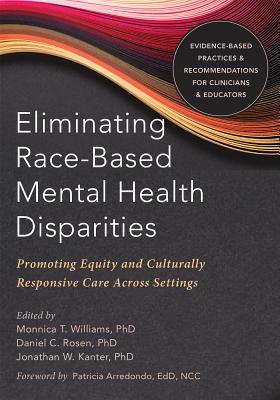Eliminating Race-Based Mental Health Disparities: Promoting Equity and Culturally Responsive Care Across Settings
$80.96
Description
Eliminating Race-Based Mental Health Disparities offers concrete guidelines and evidence-based best practices for addressing racial inequities and biases in clinical care.
Perhaps there is no subject more challenging than the intricacies of race and racism in American culture. More and more, it has become clear that simply teaching facts about cultural differences between racial and ethnic groups is not adequate to achieve cultural competence in clinical care. One must also consider less “visible” constructs–including implicit bias, stereotypes, white privilege, intersectionality, and microaggressions–as potent drivers of behaviors and attitudes.
In this edited volume, three leading experts in race, mental health, and contextual behavior science explore the urgent problem of racial inequities and biases, which often prevent people of color from seeking mental health services–leading to poor outcomes if and when they do receive treatment. In this much-needed resource, you’ll find evidence-based recommendations for addressing problems at multiple levels, and best practices for compassionately and effectively helping clients across a range of cultural groups and settings.
As more and more people gain access to services that have historically been unavailable to them, guidelines for cultural competence in clinical care are needed. Eliminating Race-Based Mental Health Disparities offers a comprehensive road map to help you address racial health disparities and improve treatment outcomes in your practice.
Editor: Williams, Monnica T, Editor: Rosen, Daniel C, Editor: Kanter, Jonathan W, Foreword by: Arredondo, Patricia
Topic: Psychology
Media: Book
ISBN: 1684031966
Language: English
Pages: 384
Additional information
| Weight | 2 lbs |
|---|















Reviews
There are no reviews yet.